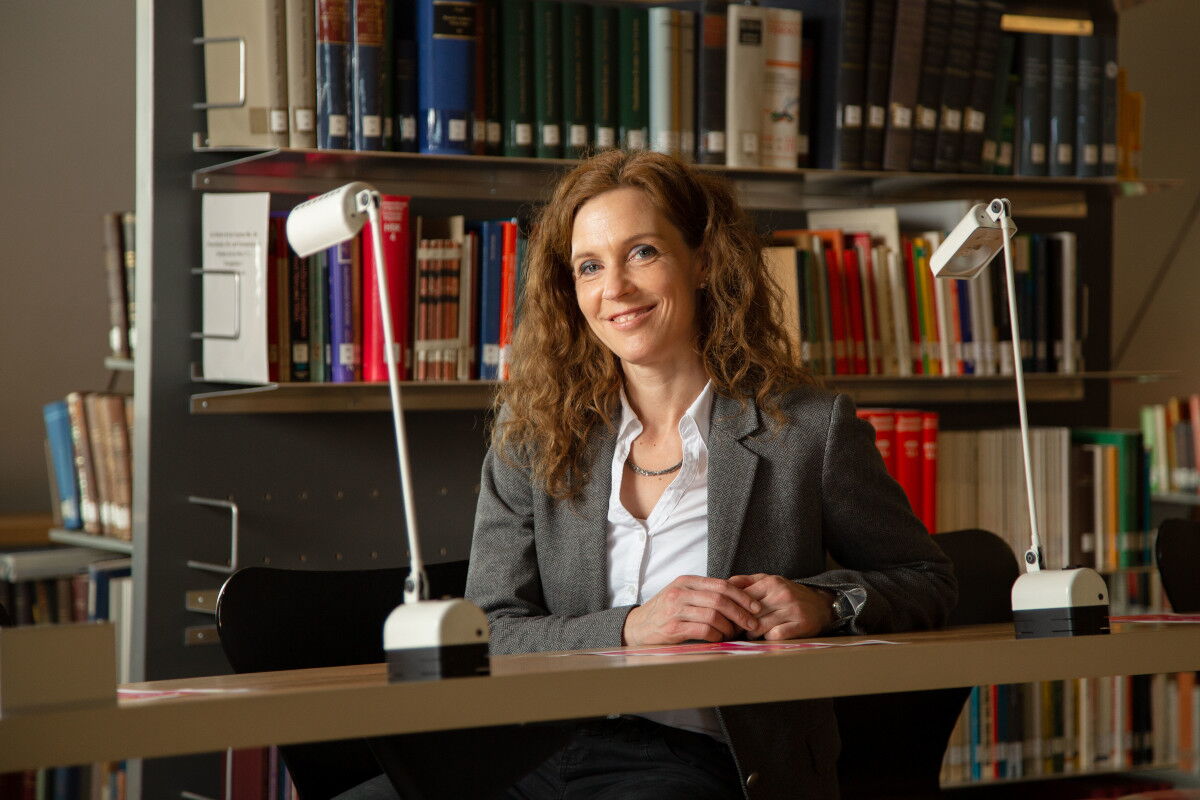Sebastian Brant – A Humanist from the Upper Rhine / Interview with PD Dr. Terrahe

May 10, 2021, will be the 500th anniversary of Sebastian Brant’s death. The late medieval writer is mostly known for his literary work “The Ship of Fools”. The University of Basel, where Sebastian Brant served as a professor of law, is honoring him with an online lecture series, which coincides with academic events at the University of Strasbourg in the framework of Eucor – The European Campus.
Associate Professor Dr. Tina Terrahe, you are organizing the anniversary events at the University of Basel. Can you tell us more about Sebastian Brant?
PD Dr. Tina Terrahe: Sebastian Brant wrote works in German, but he also wrote Latin poetry and books on law, and he was a politician. He was born 1457 in Strasbourg and studied in Basel, where he became one of the most important scholars at the University. He was not only a professor of law; he was also a faculty dean, and he wrote legal opinions and worked as a lawyer and judge in Basel. In 1501, he returned to Strasbourg, where he became the town clerk – a position with great political influence. Most of his literary works were written in Basel, while his later years in Strasbourg were rather defined by his political career. As far as we know, his position as town clerk left him little time to do creative work.
What is Sebastian Brant’s significance for the Upper Rhine region today?
Through his many years of working and writing in Strasbourg and Basel, he left an impact that still links Switzerland and France today. That having been said, his standing may be somewhat less positive in Switzerland because he left the city of Basel when it joined the Swiss Confederation. The country most interested in Brant is Germany, however, possibly because Germany was the largest market for his German works. His book “Das Narrenschiff” (“The Ship of Fools”) was perhaps the most famous work of its time and was (and still is) interesting even for regular people not educated in literature despite its literary depth.
The lecture series will focus not only on Brant’s main work “The Ship of Fools”, but also on the letterpress. Why is that?
The letterpress was brand new at the time and was beginning to replace the medieval tradition of handwritten books. Brant not only wrote literature, he was also an industrious publisher who worked closely with printers in Basel. He experimented with the layout of pages and established new standards in the history of print media.
What other academic events are planned for this anniversary year?
By a wonderful coincidence, at least from the perspective of the Eucor alliance, Prof. Dr. Nikolaus Henkel from the University of Freiburg is a recognized expert on Sebastian Brant. This means that three of the Eucor Universities (Basel, Freiburg, and Strasbourg) are working together to organize anniversary events and joint lectures for the occasion. In addition to the online lecture series at the University of Basel, which begins on March 3, an academic conference is also scheduled at the University of Strasbourg for May 10 and 11. Furthermore, there will be an exhibition (if the pandemic allows) in the Kunstmuseum Basel (May 8 – September 5, 2021), and an online research project called “Narragonien digital. Digitale Textausgaben von europäischen ‘Narrenschiffen’ des 15. Jahrhunderts” (Online Narragonia. Digital Editions of the European ‘Ships of Fools’ of the 15th Century) (www.narragonien-digital.de). This will also be accompanied by evening events and lectures, a guided city tour, and an excursion.
More information about the lecture series and other activities and events